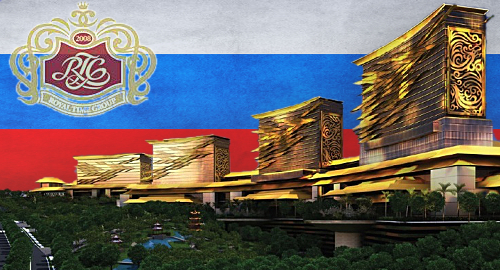 A Russian casino operator’s plans to develop a project in the far east Primorye gaming zone appear in doubt, according to a recent court filing.
A Russian casino operator’s plans to develop a project in the far east Primorye gaming zone appear in doubt, according to a recent court filing.
Last week, the Development Corporation of the Primorsky Territory filed a claim in the Arbitration Court of Primorsky Krai seeking to terminate its contact with Royal Time Primorye, a division of casino operator Royal Time Group. A preliminary hearing has been scheduled for May 15.
In March, Primorsky Territory Vice-Governor Evgeny Polyansky declared that companies holding contracts to develop gaming projects in the gaming zone outside Vladivostok needed to adhere to their stated timelines.
Expressing frustration at the laggard pace of some of the projects, Polyansky announced that failure to meet stated timetables would result in “termination of the investment agreement with the subsequent payment of fines for failure to work.”
There are (so far) four gaming projects in development in Primorye, but only one – Lawrence Ho’s Tigre de Cristal – is currently operational. NagaCorp’s Mayak aka ‘Lighthouse’ project is expected to open its first phase in 2018, while the first phase of Diamond Fortune Holdings’ Selena resort will also hopefully commence operation sometime next year.
Royal Time’s Primorye project – dubbed Phoenix – was originally scheduled to open this year but Polyansky’s March statement chided the firm for failing to meet its promised pace of development. Polyansky warned at the time that if investors “are not able to comply with the established plan, we will find others.”
Royal Time’s inability to stick to a schedule could have something to do with its internal upheaval. The company has already replaced its CEO twice in 2017, with Konstantin Emelyanov replacing Bulat Bahtiozin in February, only to have Vyacheslav Makarushkin named chief executive just one month later.
In February, Royal Time announced that it was no longer pursuing a casino project in Russia’s ‘Amber’ gaming zone near Kaliningrad. The project was taken over by a new company, Uni Management, whose principals include Bulat Bahtiozin and yet another former Royal Time CEO, Rashid Taymasov.
Royal Time reportedly still has plans to expand into the Siberian Coin gaming zone, while its Oracul casino in the Azov-City gaming zone is living on borrowed time. In 2015, the Russian government ordered the shutdown of all casinos in the Azov-City gambling zone in the Krasnodar region so that casinos could operate in the newly created Sochi gaming zone, although last May the government announced that the Azov-City casinos could remain open until Dec. 31, 2018.
Meanwhile, the Primorye Department of Tourism has responded to Tigre de Cristal’s public denouncement of illegal gambling operators stealing its action. The Department has set up an illegal gambling hotline for local residents to anonymously fink on anyone running an illegal gambling operation – be it land-based or online – and thus ensure a steady stream of customers for locally licensed operators.